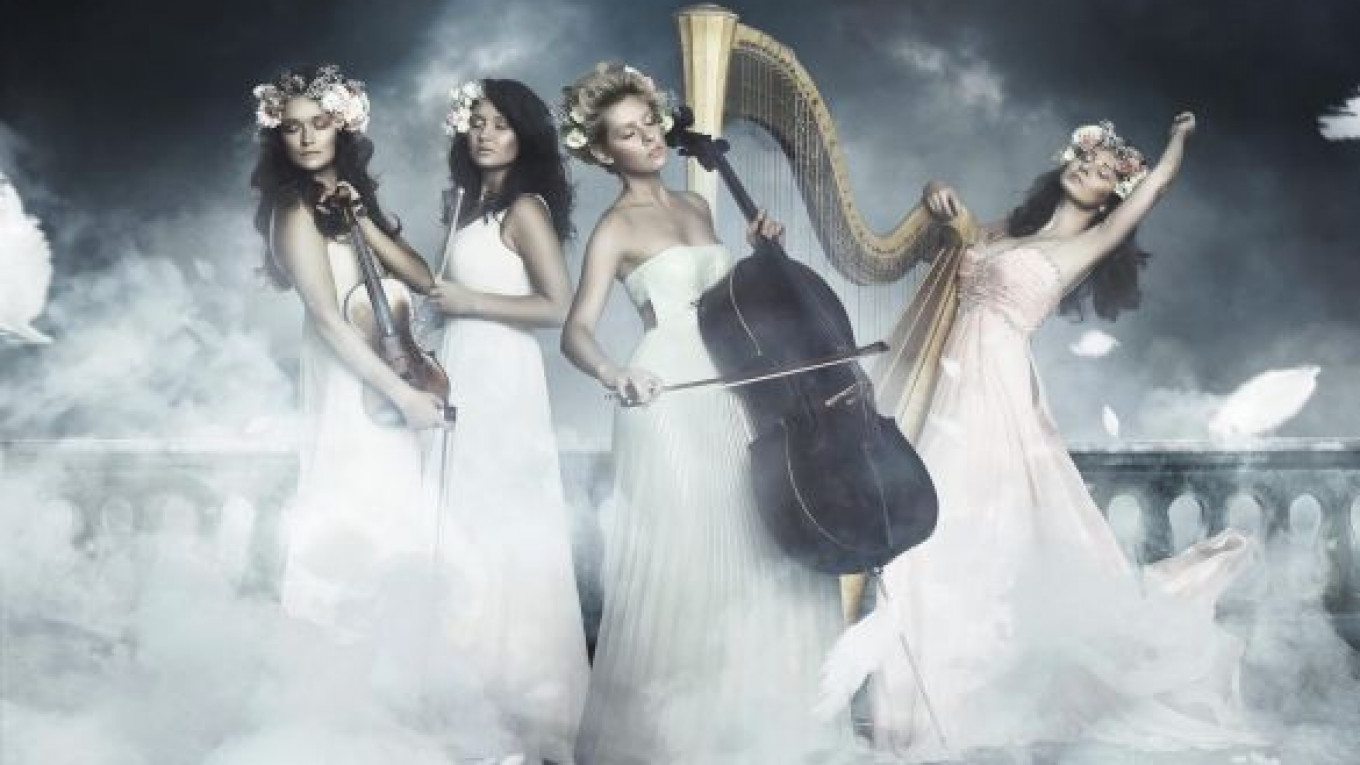As gray clouds dominate Moscow skies and cold fall winds whip down the streets of the capital, the season for citywide festivals seems to be at an end. However, Muscovites will have one last hurrah before winter with the "Night of Music" celebration this weekend, intended to commemorate International Music Day on Oct. 5.
"Night of Music" is a wholly new festival, organized for the first time this year by the Moscow culture department. In its inaugural year, the festival will consist of a huge array of concerts in many different styles of music held on more than 150 platforms throughout the city.
"The idea behind this event was a continuation of the popular events that Muscovites are already accustomed to, such as Museum Night and Library Night," said Yelena Zelentsova, deputy director of the Moscow culture department, in an interview with Moskva 24 television. "This event, Music Night, seemed to be asking for us to organize it."
The night's concerts will be spread throughout the city at venues ranging from artsy lofts and galleries to Moscow's largest concert halls. Nearly all of the events will have free entrance, though four of the largest events will have tickets that will be sold for a largely symbolic 300 rubles ($9.34).
The main platforms for the night's events will be the city's 12 musical schools, all centers for education in classical music. This in part reflects the night's focus on classical music and more "serious" contemporary music in general — well-known pop stars and bands are notably absent from the night's lineups.
"The main idea is to attract citizens who might not give enough attention to classical music and serious modern music and to give them the opportunity … to get acquainted with the best pieces played by the best musicians," Zelentsova said.
A number of well-known musicians spoke at a press conference Thursday about the upcoming Music Night, emphasizing their commitment to expanding the musical taste of Muscovites. Saxophonist Igor Butman, whose group will perform as part of the festival, said "musical schools should be centers of culture," and noted that many musicians were happy to perform for free for the many Muscovites who were unable to attend the capital's expensive concert venues.
The composer Anton Bagatov recalled the days when famous musicians like Soviet pianist Syatoslav Richter played concerts in the city's music schools, saying that music was "a powerful weapon" and should be widely available to all citizens. Alexander Rudin, a violinist and director of the "Musica Viva" chamber orchestra, agreed with Bagatov and said music was an important tool in fighting against bad taste and poor habits amongst city youth.
The festival will commence at about 5 p.m. on Oct. 5 with a series of children's shows and concerts to be held in the main platforms at the city music schools. The first round of classical concerts will begin at about 7 p.m. and will be dominated by young professional musicians. Most of these musicians are graduates of prestigious Russian and foreign musical academies and the winners of numerous awards, yet many of them began their careers in the very same city music schools where they will be performing Saturday night.
The second round of concerts will begin at about 10 p.m. and will contain many of the festival's bigger names, as well as moving to larger and more central venues like the Moscow Philarmonic and the Russian Academy of Music.
Some of the most anticipated musicians of the night will be well-known artists like Igor Butman and Anton Bagatov, who will be joined by other famous soloists like pianists Pyotr Aidu and Zlata Chochiyeva, violinist Ivan Pochekin and vocalist Anna Klepikova.
A wide variety of groups will also perform at the festival: Large ensembles such as the State Academic Chamber Orchestra of Russia and the "Gnesninskiye Virtuozy" chamber orchestra will be outnumbered by the plethora of smaller groups like Questa Music, a group of recent graduates of musical academies, and the "Arfasound" musical project, which aims to combine classical chamber music with club-style DJ-ing.
Apart from the many chamber orchestras and classical soloists, a few acts will perform folk-influenced music, such as the V. M. Rybin Men's Chamber Choir, which performs vocal compositions influenced by traditional Russian melodies, and Alexander Tsygankov, a People's Artist of Russia who specializes in the Domra, a traditional stringed instrument similar to the lute.
Music Night will take place on Oct. 5 at venues throughout the city. For a full listing of concerts and more information on locations and times, see the Music Night website at moscowmusicnight.ru.
Contact the author at g.golubock@imedia.ru
A Message from The Moscow Times:
Dear readers,
We are facing unprecedented challenges. Russia's Prosecutor General's Office has designated The Moscow Times as an "undesirable" organization, criminalizing our work and putting our staff at risk of prosecution. This follows our earlier unjust labeling as a "foreign agent."
These actions are direct attempts to silence independent journalism in Russia. The authorities claim our work "discredits the decisions of the Russian leadership." We see things differently: we strive to provide accurate, unbiased reporting on Russia.
We, the journalists of The Moscow Times, refuse to be silenced. But to continue our work, we need your help.
Your support, no matter how small, makes a world of difference. If you can, please support us monthly starting from just $2. It's quick to set up, and every contribution makes a significant impact.
By supporting The Moscow Times, you're defending open, independent journalism in the face of repression. Thank you for standing with us.
Remind me later.






